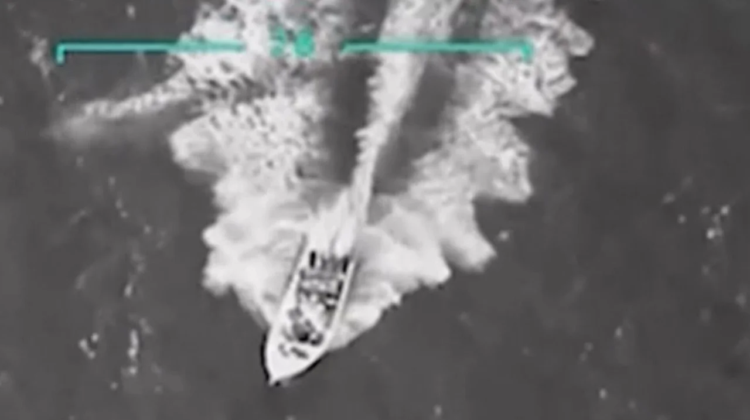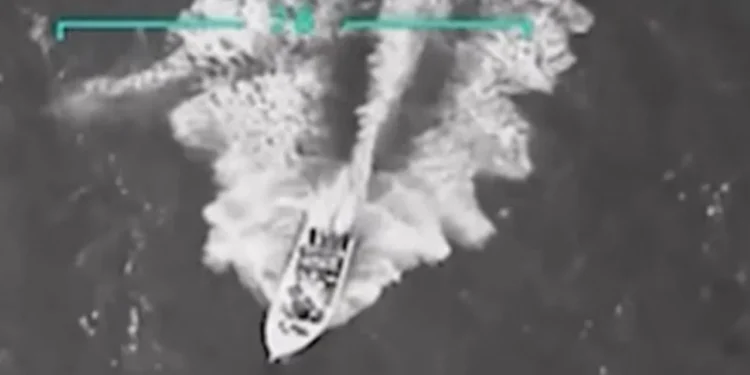
The Trump administration has repeatedly courted the Starmer government (a naïve move considering the UK government’s complicity in Russiagate and Starmer’s suppression of free speech) and while Starmer or Foreign Minister Lammy say all the right things when they’re face to face with Trump or Vance, a moment later they stab us in the back.
The United Kingdom is no longer sharing intelligence with the US about suspected drug trafficking vessels in the Caribbean because it does not want to be complicit in US military strikes and believes the attacks are illegal, sources familiar with the matter told CNN.
For years, the UK, which controls a number of territories in the Caribbean where it bases intelligence assets, has helped the US locate vessels suspected of carrying drugs so that the US Coast Guard could interdict them, the sources said. That meant the ships would be stopped, boarded, its crew detained, and drugs seized.
But shortly after the US began launching lethal strikes against the boats in September, however, the UK grew concerned that the US might use intelligence provided by the British to select targets. British officials believe the US military strikes, which have killed 76 people, violate international law, the sources said. The intelligence pause began over a month ago, they said.
The UK’s ability to control any territories in this hemisphere very much depends on cooperation with the United States.
PM Keir Starmer is choosing to throw that way to protect drug cartels and a socialist terrorist regime in Venezuela.
And that’s something that may occasion a good deal of regret.
The most notable example of US support for British interests in this hemisphere was the Reagan administration’s decision to back the UK in the Falklands War, both publicly and covertly through intelligence sharing.
Once the White House committed to supporting Great Britain, even behind closed doors, the intelligence started flowing. Intelligence sharing included “compartmental, sensitive source programs,” including signals and communication intelligence. The NSA provided almost real-time, key signals intelligence to the Government Communications Headquarters (GCHQ), the U.K.’s intelligence agency, that helped the British task force protect its aircraft carriers, perhaps the most valuable assets of the British military. Although the GCHQ worked with the Royal Navy and put HMS Endurance in the area to intercept Argentinian radio traffic long before the invasion, the British could not break the Argentinian code. The NSA then stepped in and helped their GCHQ comrades.
However, the U.K. received intelligence beyond the signal intelligence stipulated by the Five Eyes agreement. The British received key intelligence on Argentinian military plans and intentions from the CIA’s A.G. Crypto operation. Moreover, the National Reconnaissance Office (NRO), the intelligence agency that designs, launches, and operates spy satellites, relocated a satellite that was tracking Soviet movements in the Northern Hemisphere and dedicated it to the conflict. Using this raw data, the Defense Mapping Agency (DMA) provided the U.K. with satellite imagery of the Atlantic Ocean west of the Falklands, the Falklands, and the small islands of South Georgia. Interestingly, the U.S. provided satellite imagery to both combatants: Under a U.S.-Argentine Memorandum of Understanding that the U.S. had to honor, NASA provided satellite imagery of the same areas to Argentina.
American assistance to the British campaign went beyond the sharing of intelligence. The Reagan administration allowed British aircraft and vessels to use American bases and provided logistical support. The U.S. military was even ready to lend aircraft carriers to the British in case theirs got damaged or sunk. The British also received support at the individual unit level. Delta Force, the U.S. military’s premier counterterrorism and hostage rescue unit, gave its British counterpart, the Special Air Service (SAS), cold-weather gear, FIM-92 Stinger anti-aircraft missiles, and satellite phones.
Argentina was actually an important ally at the time. And while the average Brit has long since stopped giving a damn about the Falklands (and leftists never did), a lot of people in Argentina and South America remember and hate us over it.
Now PM Keir Starmer has stabbed America in the back to protect drug traffickers. And in the process has undermined a long history of intelligence sharing.
If the UK wants to engage in an intelligence sharing ‘pause’, that can go both ways, especially when it comes to the Ukraine war.
















